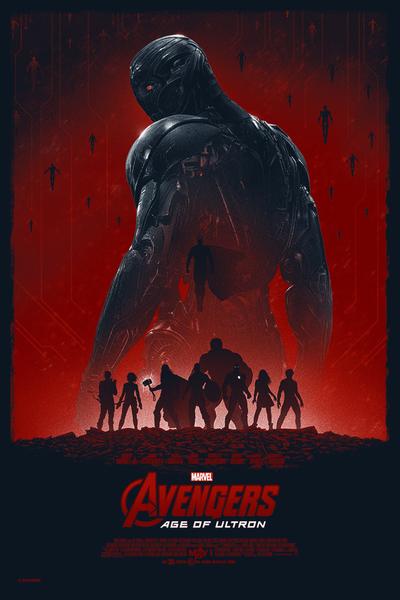
I introduced my reflections on the AI and Christianity essay series by J. Nathan Matias et al with a quote from Star Wars, so it is fitting (if thoroughly unplanned) to return to a galaxy far, far away to conclude my thoughts on the topic. The following will have some spoilers for The Last Jedi, but after I saw it I realized its themes were too relevant to pass up. While there is no AI per se in the film, the story is all about decisions, who gets to make them, and how they get made. In that sense, it overlaps strongly with the conversation about AI, which is often employed as a tool to either inform decision-making or even make decisions on its own, whether they be which stocks to buy and sell and at what price, which route to take from here to there, or which illness a patient suffers from. As we give responsibility to AIs for those decisions, it is worth thinking about what values should guide those decisions, and the stories we tell can help us recognize and reflect on those values.
One of the great nerd debates is how to classify Star Wars. The advanced technology of spaceships and laser swords reflect science fiction sensibilities, yet the stories are rarely about that technology and its implications in the way sci-fi often is. Narratively, the saga resembles fantasy tales with an emphasis on destiny and fate. Creator George Lucas famously engineered the original story around Joseph Campbell’s distillation of mythology which taps into a supposedly universal desire to discover that you were born a special hero destined to go on a world-changing journey. Curiously, this particular hero’s journey plays out within a larger story of authoritarianism vs democracy. That conflict is so central to Star Wars that the new films go through some contrived contortions to establish our protagonists as plucky underdogs fighting for freedom despite the fact the democratic forces prevailed at the end of Return of the Jedi. And yet that fantasy of being born special with a pre-ordained fate is the opposite of personal freedom. We apparently will happily give up the notion that we are in control of our lives if it means we get to be the hero of the story. To borrow from another big screen Disney property, perhaps Loki was right in The Avengers when he said we wanted to be set free from freedom.
The appeal of having an artificial intelligence make decisions may speak to the same desire. Making decisions is challenging and risky. Why not let someone more intelligent with more information have that responsibility, even if that ‘someone’ is implemented in software.
In Star Wars stories, while artificially intelligent droids provide comic relief and retractable helping hands, The Force plays the role of shaping decisions. The details are hazy and the emphasis waxes and wanes, but there is an overall suggestion that The Force is guiding events towards certain outcomes. Who decides which outcomes? If we’re feeling like taking a metatextual bent, we could say the screenwriters and directors or maybe even the audience are the ones whose values and preferences call the shots. Within the story, The Force is more akin to the collective will of every living organism or every single object in the universe. Or at least thats what we are told. What we tend to see is that using The Force amounts to magically imposing your will directly on the universe while bypassing physical causality. I want these rocks over there, so that’s where they go. I want this person to do that thing, so she does.
I sense that Rian Johnson, writer and director of The Last Jedi, is aware of these tensions between autonomy and destiny. He knows what we expect from these kinds of stories and subverts those expectations perhaps to draw our attention to them. For example, one of the big questions from the previous episode was the question of Rey’s heritage. The first six episodes were about Anakin Skywalker, a child slave who may have been a virgin birth and subject of ancient prophesies, and his son Luke Skywalker, who thought he was a nobody until he discovered his hidden parentage. The Force Awakens introduces Rey with parallels to both, an apparently insignificant person whose history was mysterious enough to suggest hidden significance. Yet The Last Jedi reveals she is not a Skywalker as many fans suspected and not from any other notable family in the galaxy. Her story was not laid out for her by the circumstances of her birth; it is the product of her own choices.

(© Disney)
We can relinquish decisions to AI, but in another sense computer programming can feel like directly imposing your will on the universe as well. You just say what you want to have happen and it happens, without needing to know exactly how. In reality, this is because programming operates at various levels of abstraction, and someone else has already figured out the “exactly how” part and written that into a hardware driver or other low-level software so that everyone else can just say “do this” and it is done. I believe this is part of the allure of AI. As a decision-making tool, it provides the programmer with the opportunity to extend her preferences and values to a larger number of decisions than she could make unaided.
Another thread in The Last Jedi is the story of Poe Dameron. He’s not another hero-of-destiny type; he’s the self-sure, shoot-from-the-hip, “I make my own destiny” type, similar to Han Solo. Often, these characters are rewarded for their challenges to authority. Poe certainly butts heads with those in authority over him, yet his story has a different outcome. What his superior officers, or really his mentors, want him to cultivate is not blind loyalty to the system; they want him to appreciate the nature of the authority that he himself has. He’s used to making decisions for himself, but he hasn’t realized that his successes mean others are following him and so his decisions are no longer about himself anymore. It’s a lesson about expecting more of those to whom much has been given. In this case, what Poe has been given is not phenomenal piloting talent (although he has that too) but influence. His fellow rebels give him the power to influence them even though he hasn’t asked for it, and so he has to learn to steward that gift.
The AI and Christianity series touches on the topic of influence and how AI can accumulate and magnify that influence. The articles on justice and forgiveness and finance and fairness both allude to the reality that human values and human influence can show up in decisions made by AI tools. By training on past decisions, AIs can learn to recapitulate whatever biases shaped those decisions in the past. And by responding to choices we make as we make them, such as what articles we like and share, AI tools can amplify the choices made by a few people early on in a way that limits the choices of everyone else later. We may not be able to completely eliminate these effects of using AI, but like Poe we can recognize them and adjust our decisions accordingly.
Which brings me to the final relevant theme of The Last Jedi: failure. Nearly all of the main characters have lapses in judgment at some point in the story, many with significant, even life-and-death consequences for themselves and others. Even the collective wisdom of the Jedi order is called into question. This is not a story about how to be perfect, this is a story about how you react when you go astray.
The story of our use of AI will also not be a story of how to be perfect. No matter how intelligent the scientists and engineers who develop them, no matter how much data we feed into them, our AI tools will make the wrong decisions. We will make wrong decisions building them and applying them. Our challenge is to accept that up front, to find ways to build grace and mercy into our systems so that those wrong decisions can be corrected or mitigated, and to make provisions for restoring those who are harmed. If software tools can help us with that too, great. But one way or another, that is how we can balance the greater influence afforded to those of us whose decision-making is extended by AI.
Andy has worn many hats in his life. He knows this is a dreadfully clichéd notion, but since it is also literally true he uses it anyway. Among his current metaphorical hats: husband of one wife, father of two teenagers, reader of science fiction and science fact, enthusiast of contemporary symphonic music, and chief science officer. Previous metaphorical hats include: comp bio postdoc, molecular biology grad student, InterVarsity chapter president (that one came with a literal hat), music store clerk, house painter, and mosquito trapper. Among his more unique literal hats: British bobby, captain’s hats (of varying levels of authenticity) of several specific vessels, a deerstalker from 221B Baker St, and a railroad engineer’s cap. His monthly Science in Review is drawn from his weekly Science Corner posts — Wednesdays, 8am (Eastern) on the Emerging Scholars Network Blog. His book Faith across the Multiverse is available from Hendrickson.

Leave a Reply